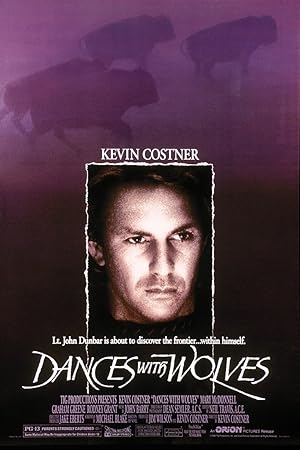
Dances With Wolves
Synopsis
Lt. John Dunbar is dubbed a hero after he accidentally leads Union troops to a victory during the Civil War. He requests a position on the western frontier, but finds it deserted. He soon finds out he is not alone, but meets a wolf he dubs "Two-socks" and a curious Indian tribe. Dunbar quickly makes friends with the tribe, and discovers a white woman who was raised by the Indians. He gradually earns the respect of these native people, and sheds his white-man's ways.
Critical Acclaim
The 1990 release of Dances With Wolves marked a significant moment in cinema, as it was embraced by critics for its sweeping portrayal of the American frontier and its deep exploration of Native American culture. Directed by and starring Kevin Costner, the film was lauded for its ambitious storytelling and stunning cinematography by Dean Semler. Critics praised the film's ability to blend epic scale with intimate character development, a combination that resonated with audiences and led to its success as a historical drama.
In contemporary reviews, critics highlighted the film's groundbreaking approach to its subject matter. Roger Ebert of the Chicago Sun-Times awarded the film four stars, commending its "breathtaking" visuals and "elegant" direction. The Los Angeles Times' Sheila Benson remarked on the film's "poetic beauty and cultural sensitivity." Today, Dances With Wolves holds an 87% approval rating on Rotten Tomatoes, reflecting its continued appreciation for its storytelling and visual achievement. Modern critics maintain that the film's empathetic portrayal of its Native American characters remains a standout aspect of its legacy.
The film's critical acclaim was matched by its remarkable success during awards season, winning seven Academy Awards, including Best Picture and Best Director for Costner. Dances With Wolves also helped to revive interest in Westerns, a genre that had been waning in popularity. Its influence extended beyond box office success, as it sparked conversations about the representation of indigenous people in Hollywood, setting a precedent for future films. The film's enduring legacy is evidenced by its inclusion in the National Film Registry, ensuring its place as a culturally significant piece of American cinema.
Track your movie viewing progress at Your Watchlists